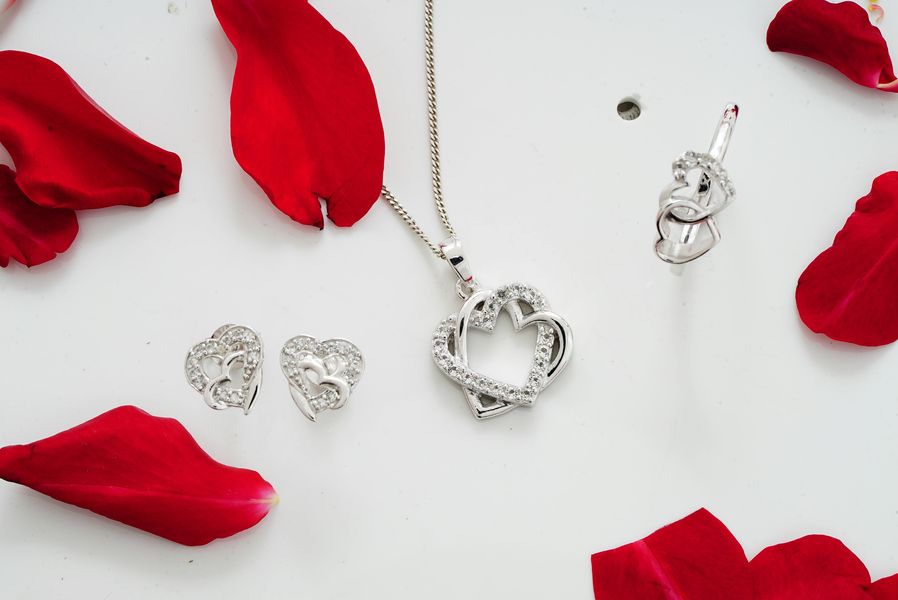Identifying Toxic Relationships
Have you ever found yourself in a relationship that left you feeling drained and unhappy? Do you feel like you’re the only one giving, while the other person takes and takes?
If so, you may be in a toxic relationship.
Types of Toxic Relationships
Toxic relationships can take many forms. They can be romantic, with one partner manipulating and controlling the other.
They can be friendships, where one friend constantly puts down the other. They can even be between co-workers or family members.
No matter the type of relationship, toxic people tend to share a few common traits. They may be selfish, manipulative, or just plain mean.
They may try to control the other person or use them for their own benefit. And they may not even realize they’re doing it.
Signs of Being Used
One of the biggest signs of a toxic relationship is feeling trapped. You may feel like you can’t leave, or you’ll face consequences like losing your job or losing a friend.
You may feel like you have to stay, even though you know it’s not good for you. Another sign is an imbalance of give and take.
You may be the one doing all the giving, while the other person takes and takes. They may not even acknowledge your contributions, or they may act like they’re entitled to them.
Reasons Why People Use Others
So why do people use others? There are a few reasons.
1) Selfishness as a Reason for Using Others
One common reason for using others is selfishness. Selfish people tend to have a few common traits and behaviors.
They may feel entitled to everything, even if they didn’t earn it. They may be ungrateful and take the things they have for granted.
And they may be demanding, always wanting more and more.
Examples of Selfish Behavior
- Assuming: Selfish people often assume that everything revolves around them.
- They may assume that you’ll always be available to help them, or that you’ll give them what they want without question.
- Getting Mad When Told No: Selfish people don’t like it when they don’t get what they want.
- They may get angry or sulk when you tell them no. They may try to guilt-trip you or make you feel like you’re being unreasonable.
2) Insecurity as a Reason for Using Others
Insecurity can be a powerful motivator for people to use others. Insecure individuals may have a deep-seated fear of being inadequate or inferior, which can lead to a distrust of those around them.
They may also be prone to hostility, pessimism, and neediness, which can manifest in their relationships.
Characteristics of Insecure People
- Insecure people often feel inferior to others, especially in social situations.
- They may also lack trust in others and doubt the sincerity of the people around them.
- In addition, insecure individuals may be hostile and quick to take offense if they feel slighted or criticized.
How Insecurities Affect Relationships
- One way that insecurities can affect relationships is through projection.
- Insecure individuals may project their own feelings of inadequacy onto others, assuming that they are being judged or criticized when they are not.
- This can cause them to overreact to minor slights or perceived criticisms, and may lead to arguments and conflicts in their relationships.
- Another way insecurity can manifest is through manipulation.
- Insecure people may try to control others in order to feel more secure themselves.
- This can take many forms, such as guilt-tripping, gaslighting, or emotional blackmail.
- Ultimately, these manipulative behaviors undermine trust and create a toxic dynamic in the relationship.
- Finally, insecure individuals may lash out at their partners when they feel overwhelmed or threatened.
- This can lead to angry outbursts, emotional abuse, or even physical violence. These behaviors are unacceptable in any relationship and should be addressed through counseling or other forms of intervention.
3) Powerlessness as a Reason for Using Others
Lack of control can be a powerful trigger for abusive behavior in relationships. When people feel powerless in their own lives, they may try to exert control over others as a way of regaining a sense of agency.
This often manifests as bullying, emotional abuse, or other harmful behaviors.
How Lack of Control Can Lead to Abusive Behavior
- When people feel frustrated or powerless, they may lash out at their partners as a way of releasing their pent-up emotions.
- This can take many forms, such as yelling, belittling, or physically intimidating their partners.
- These behaviors are abusive and can cause significant harm to the victim.
- In addition, lack of control can lead people to seek control over others through manipulation.
- For example, a person who feels powerless in their job may try to manipulate their partner into doing what they want, or make unreasonable demands in order to feel more powerful.
Example of a Powerless Person Taking it Out on Others
A common example of a powerless person taking it out on others is a selfish husband who demands a great deal from his wife but contributes very little.
This may include expecting her to manage the household, raise the children, and take care of his needs, while he refuses to help with any of these tasks.
He may also be demanding and manipulative, using guilt or other forms of emotional coercion to get what he wants.
Ultimately, this behavior is a manifestation of the husband’s feelings of powerlessness.
By asserting control over his wife, he feels like he has a sense of agency in his life. However, this behavior is abusive and will ultimately undermine the relationship.
4) Narcissism as a Reason for Using Others
Narcissism is a personality disorder characterized by a sense of entitlement, superiority, and a lack of empathy for others. People with narcissistic tendencies may use others to bolster their own self-esteem and manipulate those around them for their own benefit.
Narcissism and Low Self-Esteem
People with narcissistic tendencies often have low self-esteem at their core. They may use their inflated sense of superiority and entitlement as a way to compensate for their own feelings of inadequacy.
They may brag about their accomplishments, take credit for the work of others, and belittle those around them to feel more powerful.
Traits of Narcissistic Behavior
In addition to these traits, people with narcissistic tendencies may show a lack of empathy for others.
They may be unable or unwilling to put themselves in another’s shoes and may act as though their own needs and desires are the only ones that matter.
They may also retreat into a fantasy world where they are the center of attention and everything revolves around them.
5) Signs of Being Used
When someone is being used in a relationship, they may feel like something is off but not know exactly what.
Here are some signs to look out for:
- Focusing Solely on the Other Person: If you find that the relationship revolves around the other person’s wishes, interests, and moods, and you feel like you have to cater to them all the time, you may be being used.
- Lack of Communication: If the other person is not interested in or doesn’t care about your life or perspective, this is another sign that you may be being used. They may not listen to you when you speak, or may only talk about themselves.
- Imbalance in the Relationship: If you find that one person is in control and always gets their way, while you are expected to do what is convenient for them, you may be being used. The relationship should be a partnership, with both parties having an equal say.
- Only Wanting Something: If the other person only contacts you when they need something, and disappears until they do, you may be being used. The relationship should be a two-way street, with both parties putting in effort.
- Financial Imbalance: If the other person never offers to pay their fair share, constantly borrows money, and never pays it back, this is a sign that they may be using you for financial gain.
- Lack of Appreciation: If the other person never shows their appreciation or gratitude for anything you do, and never does anything thoughtful or supportive for you, they may be taking you for granted and using you for their own benefit.
- Manipulative Behavior: If the other person is constantly guilt-tripping you or undermining your self-esteem in order to get what they want, they may be manipulating you for their own benefit.
- All Talk, No Action: If the other person promises to do something but never follows through, or exaggerates their importance or abilities, they may be trying to manipulate you into doing something for them.
- Disregard for Boundaries: If the other person consistently ignores your wishes, gaslights you, or becomes defensive when you try to set boundaries, they may be using you for their own benefit.
- Intuition and Feelings: If you find yourself feeling resentful or disliking the other person, or feeling like you’re being taken advantage of, this is a sign that you may be being used.
What to Do If Someone is Using You
Realizing Your Worth
The first step in dealing with someone who is using you in a relationship is to realize your own worth. You don’t owe anyone anything, and you shouldn’t have to put up with disrespectful behavior or emotional manipulation.
Setting personal boundaries that reflect your own needs, values, and beliefs can help you to assert yourself in a toxic relationship and protect your own well-being.
Expecting Equal Relationships
In a healthy relationship, both partners should be treated with respect and equality. If someone is using you, it’s important to call out their disrespectful behavior and ask for an apology and change.
By asserting yourself in this way, you may be able to stand up to the other person and create a more equitable dynamic in the relationship.
Asking for What You Need
Another important step in dealing with someone who is using you is to ask for what you need. This may include emotional self-care, such as taking time for yourself, practicing self-compassion, and making your needs known to the other person.
By being clear about your own needs and desires, you can communicate your boundaries and set the tone for the relationship going forward.
Walking Away from Toxic Relationships
Ultimately, if the other person refuses to acknowledge their behavior or change their ways, you may need to walk away from the relationship entirely.
This can be a difficult and painful decision, but protecting your own mental health and well-being is essential.
Trusting your intuition and feelings can help you to recognize when it’s time to leave a toxic relationship and move on with your life.
Quotes about Being Used
- “Trust is earned, respect is given, and loyalty is demonstrated. Betrayal of any one of those is to lose all three.” -Unknown
- “The greatest gift you can give someone is your unconditional love and acceptance. But also know that if they abuse that gift, they lose it.” Unknown
- “Being vulnerable doesn’t mean being weak. It means having the courage to show up and be seen for who you are.” Bren Brown
- “It’s not about how we fall, it’s how we get up again.” Unknown
- “If someone wants you in their life, they’ll make room for you. You shouldn’t have to fight for a spot.” Unknown
- “Love should never require you to sacrifice your dignity, self-respect, or sanity.” Unknown
- “Love is not about possession. Love is about appreciation.” Osho
- “You have to learn to get up from the table when love is no longer being served.” Nina Simone
- “Sometimes walking away has nothing to do with weakness and everything to do with strength. We walk away not because we want others to realize our worth and value, but because we finally realize our own.” Unknown
- “Never allow someone to be your priority while allowing yourself to be their option.” Mark Twain
In Conclusion
Being used in a relationship is never easy, but understanding the signs and taking steps to assert yourself and protect your own well-being can help you to move forward and find healthier, more fulfilling relationships in the future.
By valuing yourself and your own needs, and rejecting toxic dynamics and behaviors, you can build stronger, more resilient relationships and create a brighter future for yourself.
In conclusion, understanding and recognizing the signs of being used in a relationship is crucial for your personal wellbeing and happiness.
Toxic relationships can cause emotional harm and affect your self-esteem, leaving you feeling drained and unhappy.
Narcissism, insecurity, and powerlessness are common reasons why people use others, and recognizing the traits and behaviors associated with these reasons is essential for protecting yourself.
By setting personal boundaries, asserting yourself, asking for what you need, and walking away from toxic relationships, you can take control of your life and build healthier, more fulfilling relationships based on mutual respect, trust, and empathy.
Remember, you deserve to be in an equal, loving relationship where you’re valued and appreciated for who you are.


